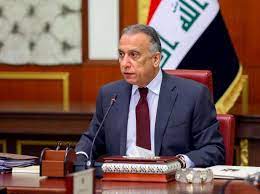Iraq’s Elections Are Over. Now What? By Rand Al-Rahim* Iraq’s fifth parliamentary election since the 2003 US invasion is procedurally over. The polling stations have closed, but the fight over the results has just begun. The situation is still in flux. A week after election day, the Independent High Electoral Commission (IHEC) is still checking ballots and receiving compl
Read MoreThe often-hazardous two-year struggle that led to this vote has left many of the youth movement’s most ardent supporters disillusioned with the electoral process entirely, so Washington will have to narrow its focus. When Iraqis head to the polls for an early election on October 10, they will have the Tishrin protest movement to thank. Unfortunately, large portions of the mo
Read MoreOn 28 August 2021, Iraq hosted the first “Baghdad Conference for Cooperation and Partnership” with participation of eight regional countries, including Iran, Saudi Arabia, Egypt, Turkey, Qatar, United Arab Emirates (UAE), Kuwait and Jordan, besides France as a co-sponsor. While Egypt, Jordan, Qatar and France were represented by the heads of state, Kuwait and UAE sent their pri
Read MoreIraq’s electoral system. Why successive reforms fail to bring change. By Dr Victoria Stewart-Jolley*
Summary After all but one of Iraq’s parliamentary elections since 2005, the country has reformed its election laws in response to public pressure. Despite the introduction of new electoral legislation, the formation of government continues to be removed from voters and often disregards actual electoral results. Instead, the process focuses on distributing senior posts, as
Read MoreIn my first article I discussed the risk of perpetual violence in Iraq and Syria fueled by both numerous non-state actors there and the increasingly authoritarian system in which they operate. This was followed by a more detailed look into the illicit economic activities of militias across Iraq and Syria. Leading on from this, this commentary will shift from an economic to a mo
Read More





